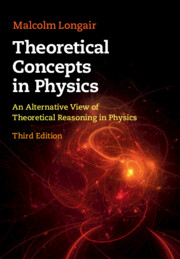Book contents
- Frontmatter
- Dedication
- Contents
- Preface and Acknowledgements
- 1 Introduction
- Case Study I The Origins of Newton’s Laws of Motion and of Gravity
- Case Study II Maxwell’s Equations
- Case Study III Mechanics and Dynamics: Linear and Non-linear
- Case Study IV Thermodynamics and Statistical Physics
- Case Study V The Origins of the Concepts of Quantisation and Quanta
- 13 Black-Body Radiation up to 1895
- 14 1895–1900: Planck and the Spectrum of Black-Body Radiation
- 15 Planck’s Theory of Black-Body Radiation
- 16 Einstein and the Quantisation of Light
- 17 The Triumph of the Light Quantum Hypothesis
- Case Study VI Special and General Relativity
- Case Study VII Cosmology and Physics
- Author Index
- Subject Index
16 - Einstein and the Quantisation of Light
from Case Study V - The Origins of the Concepts of Quantisation and Quanta
Published online by Cambridge University Press: 27 March 2020
- Frontmatter
- Dedication
- Contents
- Preface and Acknowledgements
- 1 Introduction
- Case Study I The Origins of Newton’s Laws of Motion and of Gravity
- Case Study II Maxwell’s Equations
- Case Study III Mechanics and Dynamics: Linear and Non-linear
- Case Study IV Thermodynamics and Statistical Physics
- Case Study V The Origins of the Concepts of Quantisation and Quanta
- 13 Black-Body Radiation up to 1895
- 14 1895–1900: Planck and the Spectrum of Black-Body Radiation
- 15 Planck’s Theory of Black-Body Radiation
- 16 Einstein and the Quantisation of Light
- 17 The Triumph of the Light Quantum Hypothesis
- Case Study VI Special and General Relativity
- Case Study VII Cosmology and Physics
- Author Index
- Subject Index
Summary
In 1905, Einstein published three of the greatest papers in physics on the subjects of Brownian motion, special relativity and light quanta. The third of the series is the most revolutionary of the three and asserts that, under certain circumstances, light can be considered to consist of particles rather than waves. Using his deep understanding of entropy and statistics, he showed that, in the Wien region of the spectrum, light behaves as if it consisted of light quanta with energies hn. He then showed that, if Planck had followed the proper Boltzmann procedure, he would have obtained the Planck formula for black-body radiation. He proposed three test of his hypothesis, the most important being the energy dependence of the photoelectric effect upon the frequency of the incident radiation. He could also account for discrepancies between the classical and quantum expressions for the specific heat capacities of gases.
Keywords
- Type
- Chapter
- Information
- Theoretical Concepts in PhysicsAn Alternative View of Theoretical Reasoning in Physics, pp. 389 - 408Publisher: Cambridge University PressPrint publication year: 2020

